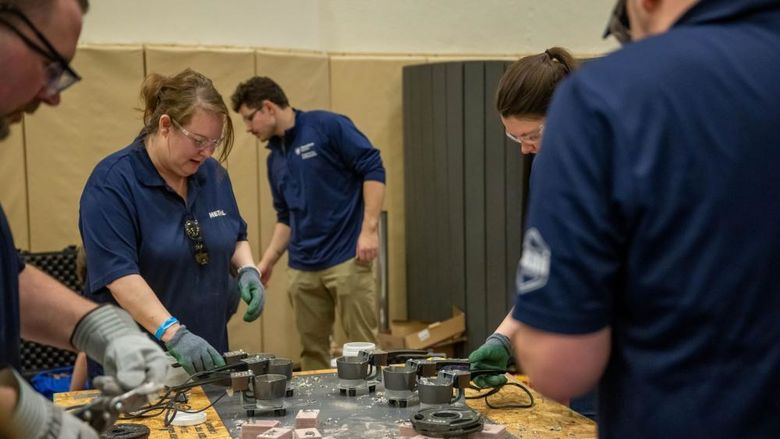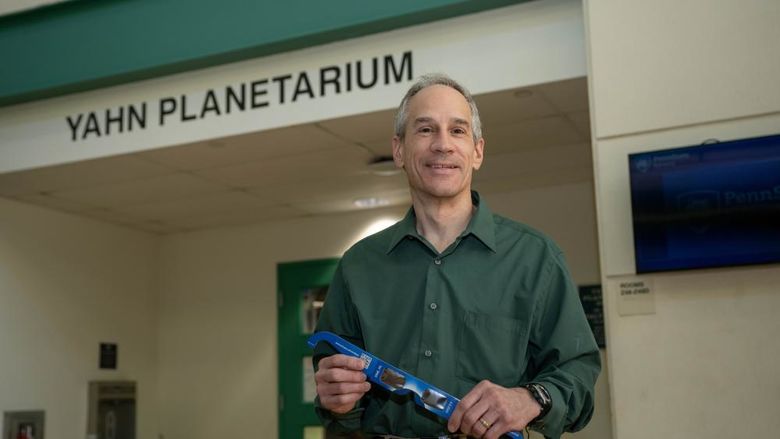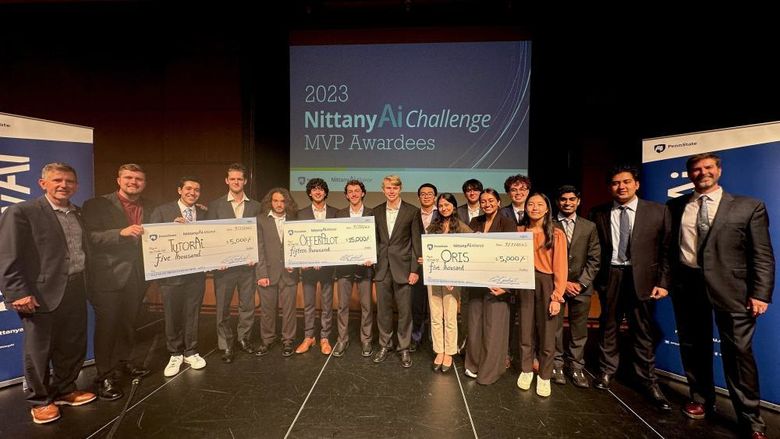
A $6.5 million state grant has positioned Penn State Behrend to begin construction of the Center for Manufacturing Competitiveness.
ERIE, Pa. — A $6.5 million state grant has positioned Penn State Behrend to begin construction of the Center for Manufacturing Competitiveness, an industry-facing research facility and the centerpiece of the college’s Project RESOLVE.
The grant was awarded through the Redevelopment Assistance Capital Program, or RACP, with support from the region’s legislators, including state Sen. Dan Laughlin and state Rep. Robert Merski. RACP grants advance regional projects that are likely to increase employment, tax revenues and other measures of economic activity.
“This $6.5 million in funding will catalyze critical advancements, fostering innovation and economic growth in our region,” Laughlin said. “This project is a prime example of how strategic investment can lead to lasting progress, and I am honored to see it take shape with the support of our state resources.”
Merski said, “Project RESOLVE’s RACP grant is the largest in Erie County and a testament to the merit of this project. By combining the academic prowess of Penn State Behrend with the business skills of the private sector, this private-public partnership puts Erie on the cutting edge of the technology that will power the future.”
Every member of the local state delegation joined Laughlin and Merski in supporting Penn State Behrend’s application for RACP funding. The new grant builds on an array of federal, state, local and University support for the Center for Manufacturing Competitiveness, including:
- $3 million from Penn State.
- $2.5 million in federal funding, secured by U.S. Sen. John Fetterman.
- $2.5 million in American Rescue Plan funding, provided by Erie County.
- $2.5 million in Erie County Gaming Revenue Authority funding, awarded by Erie County.
- $1.5 million in RACP funding, awarded in 2023.
“Project RESOLVE is an ambitious, long-range initiative that will frame the next generation of manufacturing in the Erie region and beyond,” Chancellor Ralph Ford said. “We are grateful to Gov. Shapiro, Sen. Laughlin, Rep. Merski and the many other county and local leaders who see the potential in RESOLVE and the Center for Manufacturing Competitiveness and continue to support it.”
With the new funding in place, Penn State Behrend can finalize architectural plans and begin construction of the Center for Manufacturing Competitiveness, which will include plastics and metal-casting labs. The center, which will be built in Knowledge Park, also will house the nation’s first heavy-haul battery testing facility, where researchers and industry partners will work to improve the safety and efficiency of battery packs for the rail, marine and mining industries.
“With our history of university-industry engagement and the market strength of Erie-based transportation, plastics and metal-casting companies, we are uniquely positioned to advance the adoption of new technology and equip the region’s workforce with the skills to use it,” said Amy Bridger, assistant dean for innovation and corporate strategy at the college. “With the support of multiple partners, including the state lawmakers who endorsed and advocated for our RACP application, we are now able to move forward.”
The Center for Manufacturing Competitiveness is a focal point of Project RESOLVE, a 10-year regional effort to shift the region’s manufacturing companies to a circular economic model. The center will support companies as they invest in their own operations and transition to sustainable technologies that ultimately will reduce pollution in and near the region’s freshwater resources, including Lake Erie.
Workforce training in the metal-casting sector already has begun. Those programs, funded through a $4.4 million grant from the Institute for Advanced Composites Manufacturing Innovation, complement the college’s longstanding plastics-training initiatives.
“By including voices from industry and all levels of government in the planning and design of the Center for Manufacturing Competitiveness, we have created a relevant model of industry engagement that has been broadly and enthusiastically supported across a diverse set of stakeholders,” Bridger said. “Ultimately, the measure of success is the increased investment by manufacturers in their facilities and employees — an investment that will make their businesses more competitive, generating economic impact across the region.”
Robb Frederick
Director of Strategic Communications, Penn State Behrend





